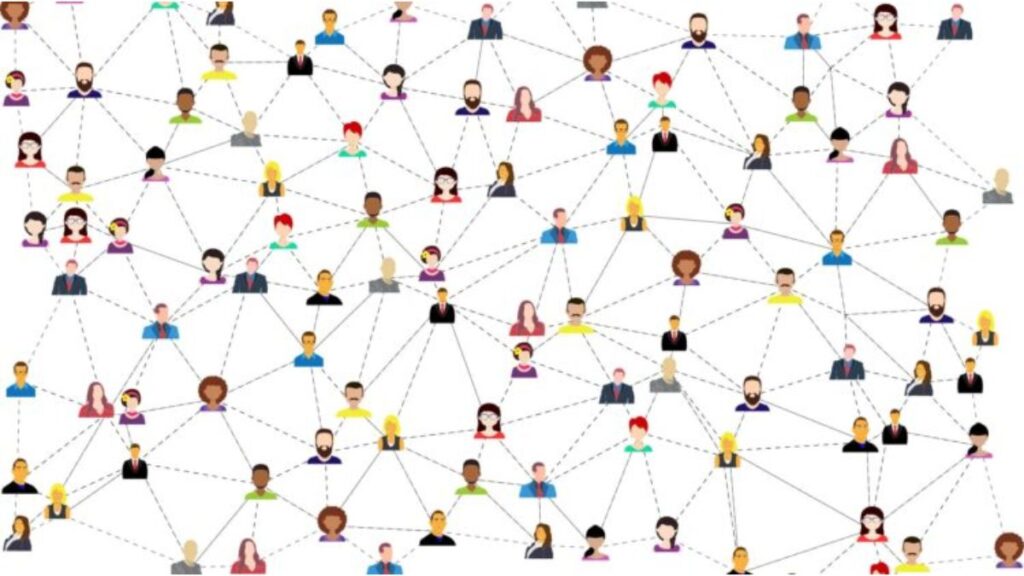In today’s interconnected world, social media has emerged as one of the most powerful tools for communication and public engagement. Its impact is felt across various sectors, from entertainment to business, and, importantly, in the realm of politics. Political discourse, which refers to the conversations and debates surrounding political topics, ideologies, policies, and leaders, has undergone significant transformations due to the rise of platforms like Facebook, Twitter, Instagram, and TikTok. These digital spaces have revolutionized how political ideas are shared, discussed, and contested, both by citizens and politicians alike. This article explores how social media is shaping political discourse, examining the benefits, challenges, and consequences of this shift.
The Democratization of Political Communication
One of the most significant ways social media has shaped political discourse is by democratizing communication. In the past, political information was often disseminated through traditional channels like newspapers, television, and radio. These outlets were controlled by a limited number of institutions, which often set the narrative and determined which voices were heard. However, with the advent of social media, individuals and groups now have direct access to a global audience. This shift has allowed for a more diverse range of voices to be heard in the political conversation.
Social media platforms enable anyone with an internet connection to express their political opinions, share news, and mobilize for causes. For example, hashtags like #MeToo and #BlackLivesMatter gained significant traction on platforms like Twitter and Instagram, allowing grassroots movements to gain visibility and rally support on a global scale. In many cases, social media has given a platform to marginalized communities who were previously underrepresented in mainstream political discussions.
Moreover, politicians have embraced social media as a way to communicate directly with voters, bypassing traditional media filters. Through Twitter posts, Facebook updates, and live-streamed events, political leaders can reach millions of people in real-time. This direct communication has been especially significant in recent political campaigns, where candidates have used social media to shape their public image, connect with supporters, and challenge their opponents.
The Rise of Echo Chambers and Filter Bubbles
While social media has broadened the scope of political discourse, it has also led to the creation of echo chambers and filter bubbles, which can have negative implications for public dialogue. An echo chamber occurs when individuals are exposed primarily to information that reinforces their pre-existing beliefs, creating a cycle of confirmation bias. On social media, algorithms prioritize content that aligns with users’ previous interactions, meaning that people are more likely to see posts that reflect their political views. This can lead to the deepening of ideological divides, as users are rarely exposed to opposing viewpoints.
Filter bubbles, a related phenomenon, occur when social media algorithms curate content based on users’ interests, essentially isolating them from diverse perspectives. This can result in a fragmented political discourse, where people become entrenched in their own beliefs and less open to understanding different viewpoints. In extreme cases, individuals within echo chambers may become more radicalized, as their online environments may amplify extreme political views.
The impact of echo chambers and filter bubbles on political discourse can be seen in the growing polarization of political ideologies. Social media has made it easier for people to form groups that share their views, but it has also made it more difficult to engage in meaningful conversations across political divides. This divide can lead to a breakdown in civil discourse, as individuals become less willing to listen to opposing arguments and more focused on vilifying those with different opinions.
Misinformation and the Spread of Fake News
Another significant challenge posed by social media in the realm of political discourse is the spread of misinformation and fake news. The speed and ease with which information can be shared on platforms like Facebook and Twitter has made it difficult to distinguish between credible news sources and unreliable ones. In many cases, false or misleading information spreads more rapidly than factual content, especially when it evokes strong emotions or supports particular political agendas.
The 2016 U.S. presidential election is one of the most well-documented examples of how social media can be used to spread misinformation and influence political discourse. During the campaign, false stories and conspiracy theories were widely circulated on social media platforms, often designed to manipulate public opinion or sow division. Some of these stories were created by foreign actors attempting to interfere in the election, while others were generated domestically to exploit political polarization.
The impact of fake news on political discourse is not limited to elections. In many countries, false information spread through social media has led to real-world consequences, including protests, violence, and political instability. The spread of misinformation can distort public understanding of critical issues, erode trust in democratic institutions, and undermine the credibility of the media.
The Influence of Social Media on Political Campaigns
Political campaigns have increasingly relied on social media as a key tool for engaging with voters, shaping narratives, and mobilizing support. Social media platforms offer candidates the ability to reach specific demographics with targeted messaging, allowing for a more personalized approach to campaigning. This is achieved through the use of data analytics and advertising tools that track users’ behaviors and preferences, enabling political campaigns to tailor their messages to resonate with different groups of voters.
For example, during the 2016 U.S. presidential election, both Hillary Clinton and Donald Trump leveraged social media to reach their supporters and attack their opponents. Trump’s campaign was particularly adept at using Twitter to bypass traditional media and directly communicate with his followers, often in provocative and controversial ways. Similarly, Clinton’s campaign utilized Facebook ads and email outreach to target key swing voters.
Social media also allows for rapid feedback from the public, enabling candidates to adjust their strategies in real time. Politicians can gauge the effectiveness of their messages by monitoring engagement metrics, such as likes, shares, and comments. This instant feedback loop has transformed how political campaigns are conducted, making them more reactive and responsive to voter sentiment.
However, the use of social media in political campaigns has also raised ethical concerns. The targeting of voters based on their personal data, the use of bots to amplify political messages, and the spread of misleading or deceptive content all raise questions about the fairness and transparency of political campaigning in the digital age.
Social Media’s Role in Political Mobilization and Activism
Beyond influencing political campaigns, social media has played a crucial role in political mobilization and activism. Platforms like Twitter, Facebook, and Instagram have made it easier for individuals to organize protests, petition for change, and advocate for political causes. The Arab Spring, a series of protests and uprisings in the Middle East and North Africa, is often cited as a key example of social media’s power to mobilize people for political change.
In recent years, social media has also been instrumental in movements such as #MeToo, #BlackLivesMatter, and Fridays for Future, which have brought attention to issues of gender equality, racial justice, and climate change. These movements have utilized social media to raise awareness, share personal stories, and mobilize supporters for offline action. By enabling individuals to connect and collaborate across geographic boundaries, social media has amplified the impact of political activism and given a voice to those who may have otherwise been overlooked by traditional media.
Moreover, social media has allowed political leaders and organizations to build and maintain grassroots support. Activist groups can now use social media to communicate directly with their followers, share resources, and coordinate efforts to achieve their goals. This has led to a shift in how political movements are organized, with social media acting as both a tool for advocacy and a space for public dialogue.
The Future of Political Discourse in the Age of Social Media
As social media continues to evolve, so too will its influence on political discourse. The rise of new platforms like TikTok, along with advancements in artificial intelligence and deepfake technology, will likely introduce new challenges and opportunities for political communication. While social media has democratized political discourse and empowered activists, it has also created new risks, including the spread of misinformation, the amplification of extreme views, and the erosion of civil discourse.
Moving forward, it will be crucial for governments, tech companies, and citizens to work together to address these challenges. Efforts to combat misinformation, regulate political advertising, and promote digital literacy will be essential in ensuring that social media continues to serve as a positive force in shaping political discourse.
In conclusion, social media has fundamentally transformed the way political discourse takes place in the 21st century. It has democratized communication, amplified voices, and created new opportunities for political participation. However, it has also introduced challenges such as echo chambers, misinformation, and the manipulation of political campaigns. As social media continues to evolve, its role in shaping political discourse will remain a critical area of study and debate.



